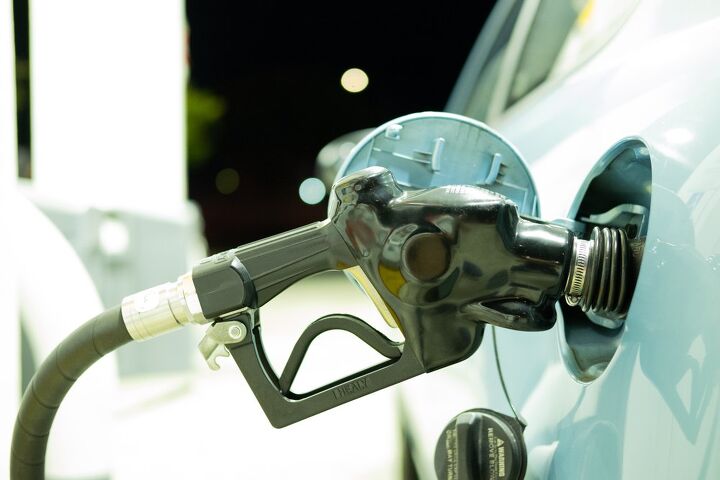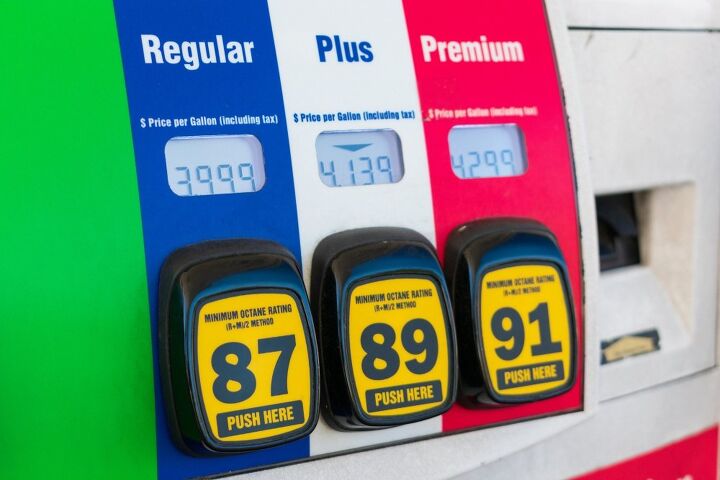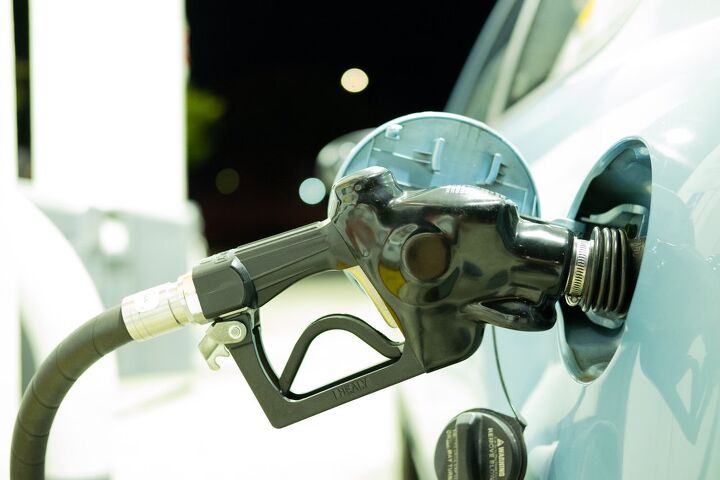#AndrewWheeler
Gas War: EPA and DOT Release Final Draft of Fuel Rollback
The U.S. Department of Transportation’s National Highway Traffic Safety Administration (NHTSA) and the Environmental Protection Agency (EPA) released their final version of the Safer Affordable Fuel-Efficient (SAFE) Vehicles Rules on Tuesday. This will establish new targets for corporate average fuel economy (CAFE) and emissions standards for passenger vehicles from the 2021-2026 model years and just in the nick of time. The document had to be completed by April 1st, in order to leave sufficient time for the coming model year.
If you’ve been following the long and arduous process that brought us here, you’ll notice the document has changed slightly from previous drafts. The rollback still enacts the straightening of emission regulations but reels them back from the lofty goals set by the Obama administration. Annual increases in fuel efficiency standards will be set at 1.5 percent through 2026. Previous drafts had the Trump administration freezing efficiency requirements at 2020 levels.
Report: Trump Administration Seeks to Soften Fuel Economy Rollback
One of the issues underpinning the gas war has been an inability for either side to compromise. Initially, it was the current administration complaining about California wanting special treatment. But the coastal state was quick to return fire, claiming that the White House never offered a valid compromise.
Eventually California extended an olive branch by suggesting it would postpone existing fuel economy mandates by one year, while attempting to lock automakers in via written commitments. But federal regulators said a singular national standard was needed, suggesting California had overstepped its authority by trying to rope in manufacturers.
However, EPA Administrator Andrew Wheeler came back this fall with claims of a revised plan that could actually be more stringent than originally presumed. While still a rollback, the new draft was said to close several loopholes the industry could use to continue their polluting ways. “In some of the out years, we’re actually more restrictive on CO2 emissions than the Obama proposal was,” Wheeler said.
New reports now suggest the EPA’s words are more than just noise.
Battle Lines Are Being Drawn in America's Gas War
Ford Motor Co, Honda Motor Co, BMW Group and Volkswagen AG announced a voluntary deal with California in July — drawing a line in the sand for who they’ll be supporting in the fueling fracas taking place between the Golden State and White House. Meanwhile, the Trump administration’s rollback proposal — which intends on freezing automotive emission standards at 2020 levels through 2026 — saw no such support. But the cavalry seems to have finally arrived after sitting on the sidelines during the battle’s opening maneuvers.
General Motors, Fiat Chrysler Automobiles, Toyota, Mazda, Nissan, Kia, and Subaru all sided against California in a filing with a U.S. appeals court from Monday night. While they’re not setting any economy targets, they are collectively firm on the issue of the state’s ability to self regulate. A large portion of the industry wants a single national standard, not individual states setting their own benchmarks while they attempt to catch up with product.
California Governor Demands Investigation Into High Gas Prices
On Tuesday, California Governor Gavin Newsom responded to a new report claiming oil companies have been overcharging customers over social media.
“[California] drivers have paid an average of 30 cents more per gallon. There’s no identifiable evidence to justify that,” Newsom said. “I’m demanding an investigation. If oil companies are engaging in false advertising or price fixing — legal action should be taken.”
With California leading the charge against the federal government’s proposed fuel economy rollback, Newsom’s words are a bit of a faux pas. While we agree that companies should not be engaging in price fixing, California’s high fuel prices are largely its own doing. Newsom’s claims completely ignore this rather obvious fact — calling his ability to effectively negotiate the national fueling fracas into question.
EPA Chief Hints Vehicle Emission Rules Could Tighten Under Trump - With a Twist
It’s certainly taking this fuel economy rollback proposal we’ve heard so much about a long time to evolve into its final form. Unfortunately, Environmental Protection Agency Administrator Andrew Wheeler has indicated more changes could be needed before a final draft can be released. However, in a bit of a twist, he’s now claiming the proposal will actually be more rigorous than preexisting mandates. Kind of.
“In some of the out years, we’re actually more restrictive on CO2 emissions than the Obama proposal was,” Wheeler told a crowd at the Detroit Economic Club this week.
Gas War: EPA Says California Has Worst Air Quality in the U.S., Threatens to Cut Highway Funding
With California gearing up for a legal battle against federal regulators eager to revoke its fuel waiver, we knew it wouldn’t be long before another salvo was launched in the gas war. However, the latest skirmish is a bit personal. According to Automotive News, Environmental Protection Agency Administrator Andrew Wheeler issued a letter to to California Air Resource Board chief Mary Nichols on Tuesday that framed the Golden State as unfit to dictate U.S. environmental policy.
The letter claims California has “the worst air quality in the United States” and a backlog of implementation plans to address ambient pollution standards surpassing every other state in the union.
California is scheduled to receive over $4 billion in annual federal highway funding this October. Now, the EPA is claiming the state failed to enforce the U.S. Clean Air Act. As a result, the Trump administration is threatening to withdraw those funds if the region doesn’t take immediately action on 130 different state implementation plans.
Gas War: Trump Confirms U.S. Will Revoke California Fuel Waiver
While a considerable portion of Donald Trump’s Twitter announcements aren’t worth paying much attention to, he does occasionally slip some actual information in there. This week, the nugget was the confirmation that his administration intends to revoke California’s federal waiver on emissions — stripping the state of its ability to self-regulate and readying America for the gas war’s main event.
The Environmental Protection Agency was already known to be making preparations to do exactly this, but the president’s Wednesday posting made things crystal clear. “The Trump Administration is revoking California’s Federal Waiver on emissions in order to produce far less expensive cars for the consumer, while at the same time making the cars substantially SAFER,” he wrote.
Gas War: EPA Head Suggests Fuel Rollback May Have Some Wiggle Room
Environmental Protection Agency Administrator Andrew Wheeler weighed in on the gas war this week, issuing some firm language on the matter during a visit to Chattanooga, Tennessee. His words were softer upon returning to Washington, where he reminded everyone that the EPA has made no formal decisions on the matter and suggested there could still be room for compromise.
Unfortunately, locating that happy middle ground has been a bit of a problem. Despite the fuel economy rollback’s status as a proposal, hard lines have been drawn in the sand between the Trump administration and California’s regulatory bodies. The Golden State’s compromise was to delay the Obama-era targets by one year. California also recruited municipalities, U.S. states, and automotive manufacturers to pledge their support of the plan, resulting in a handful of carmakers finding themselves on the business end of an antitrust probe.
Meanwhile, the Trump administration’s compromise has been nonexistent. Wheeler’s words suggest that might be because everyone is still making up their minds… but not before he gently razzed the West Coast for being shortsighted an singleminded.
Trump Officially Nominates Andrew Wheeler to Head the EPA
President Donald Trump nominated Andrew Wheeler as administrator of the Environmental Protection Agency on Wednesday, setting him up to permanently fill a position he’s already occupied since July.
Trump praised Wheeler in November his “fantastic job” as acting administrator of the EPA following the July 2018 resignation of the agency’s former scandal-ridden head, Scott Pruitt. This month, the president submitted Wheeler’s formal nomination to the Senate. There’s still a ways to go before the ex-lobbyist’s confirmation, though, as the Senate will no doubt be critical of his relatively recent ties to the coal industry.
EPA and NHTSA Officially Release Fuel Economy Plan, California Decidedly Pissed
After months of discussion, circulating drafts, and arguing with the State of California, the Environmental Protection Agency and National Highway Traffic Safety Administration formally unveiled their plan to rewrite the existing corporate average fuel economy (CAFE) rules and replace them with something far less stringent.
The proposal would freeze the presiding standards in 2020 under the “Safer Affordable Fuel-Efficient (SAFE) Vehicles Rule for Model Years 2021-2026 Passenger Cars and Light Trucks” plan, which is a mouthful.
It also moves to revoke California’s authority to set its own mandates, as predicted. The Golden State made it clear that it wants to maintain the Obama-era limits. However, the proposal includes a section emphasizing the importance of a single national standard, saying it would seek to withdraw the waiver granted to California in 2013.
“Attempting to solve climate change, even in part, through the Section 209 waiver provision is fundamentally different from that section’s original purpose of addressing smog-related air quality problems,” reads the proposal. “When California was merely trying to solve its air quality issues, there was a relatively-straightforward technology solution to the problems, implementation of which did not affect how consumers lived and drove.”
EPA to Resume Enforcement of 'Glider Truck' Rules
The new acting administrator of the Environmental Protection Agency, Andrew Wheeler, has jackknifed former EPA head Scott Pruitt’s decision to quit enforcing the strict sales limits imposed on glider trucks.
If you’re unfamiliar with the term, they’re basically new heavy commercial trucks that use old powertrains. Advocates argue that using refurbished engines and transmissions save business owners loads of cash and promote recycling, since the internals would likely end up in a scrapyard. However, many complain that glider trucks simply exist to circumvent emissions regulations.
During President Obama’s tenure, the EPA said that if gliders were allowed through 2025, they would make up a scant five percent of the freight vehicles on the road — but would account for one third of all nitrogen oxides and particulate emissions from the heavy truck fleet. A crackdown was inevitable.
Replacement EPA Boss on Board With California Gas Confab
Following Andrew Wheeler’s appointment as acting head of the Environmental Protection Agency, he extended an invitation to the California Air Resources Board to discuss emission regulations — a matter which former EPA administrator Scott Pruitt seemed less inclined to discuss with the state.
Mary Nichols, chairman of the board, said Wheeler reached out to state officials and the pair agreed to hold a meeting in Washington. It’s a slight easing of tensions in the cold war between D.C. and Sacramento.


























Recent Comments